Dr. Donald Mabbott
Program Head and Senior Scientist

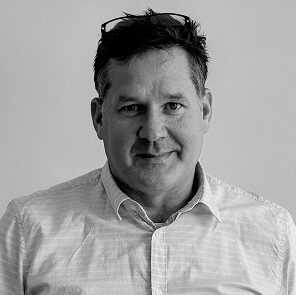

Dr. Donald Mabbott received his PhD in developmental psychology at the University of Alberta in 1998 and then completed a postdoctoral fellowship in paediatric neuropsychology at The Hospital for Sick Children (SickKids). Dr. Mabbott initially worked as a clinical psychologist with the Northern Alberta Children’s Cancer Program at the Cross Cancer Institute/Stollery Children’s Hospital in Edmonton, Alberta before returning to SickKids in 2001, where he has held multiple roles.
Currently he is Head of the Neurosciences and Mental Health Program at the SickKids Research Institute. He is a psychologist with the Paediatric Brain Tumour Program in the Division of Haematology/Oncology and a Senior Scientist at SickKids. He is also a Professor in the Department of Psychology at the University of Toronto.
Dr. Mabbott provides clinical neuropsychology services to children with brain tumours and their families and has a research program in developmental neuropsychology.
Dr. Donald Mabbott
Program Head and Senior Scientist

 Education:
Education:2018 – 2020: Postdoctoral Research Fellow, McGovern Institute for Brain Research at Massachusetts Institute of Technology (MIT), Harvard University, and Massachusetts General Hospital
2013 – 2018: Ph.D. in Neuroscience, Centre for Neuroscience Studies, Queen’s University
2011 – 2013: M.Sc. in Neuroscience, Centre for Neuroscience Studies, Queen’s University
2007 – 2011: B.Sc. with Honors, Double Major: Biology and Psychology, University of Toronto
Research Interests:
I’m a developmental cognitive neuroscientist who uses brain imaging to understand the network mechanisms supporting typical and atypical neurocognitive development. I’m also fundamentally interested in exploring how rehabilitation interventions for brain injuries sustained in childhood can harness the brain’s potential for repair, and how these research findings can be translated to both clinical and educational practice in a direct and meaningful way.
My research integrates multimodal neuroimaging techniques and sophisticated computational approaches to address a key unanswered question in cancer neuroscience, which is: how does adaptive and maladaptive changes to structural connectivity of brain networks influence network neural communication, and ultimately predict cognition in typically developing children and adolescents and those with cancer related cognitive impairments? I’m further investigating how neuroimaging indices can be utilized as novel biomarkers of cognitive impairments for children and youth treated for brain tumors.
The interdisciplinary focus of my research, which sits at the intersection of clinical neuroscience, developmental cognitive neuroscience, and computational neuroscience, has explicit clinical and educational translational relevance. My work is ultimately key to developing, informing, and monitoring new approaches to ameliorate cognitive late effects in children and youth treated for cancer and enhancing their quality of life.
Dr. Noor Al Dahhan
Postdoctoral Research Fellow

 Education:
Education:2023: Ph.D., Clinical-Developmental Psychology (Neuropsychology specialty), York University
2018: M.A., Clinical-Developmental Psychology (Neuropsychology specialty), York University
2015: M.Sc., Psychiatry, McGill University
2012: B.A., Psychology, McGill University
Research Interests:
My research interests include neurocognitive, academic, and mental health outcomes following acquired and traumatic brain injury and neurological conditions in pediatric populations. In the past decade, my work has focused on pediatric stroke specifically, including ischemia and hemorrhage, occurring in the perinatal/neonatal period to teenage years.
Other Interests:
I love to play with my toddler, hang out with my husband and friends, cook Italian meals and bake French desserts, work out (get those endorphins!), explore local cafes, and read books in the subway.
Dr. Claire Champigny
Psychologist
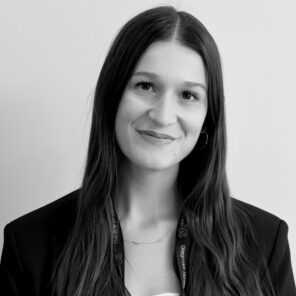
2025: PhD, Music and Health Sciences (Neuroscience specialization), University of Toronto
2020: MA, Music and Health Sciences (Neuroscience specialization), University of Toronto
2016: Honors Bachelor of Music Therapy, Acadia University
Research Interests:
My research interests and previous work have focused on cognitive outcomes and functioning, and how these influence quality of life for individuals with cognitive impairment. With a clinical foundation in Neurologic Music Therapy, I have explored how targeted, evidence-based interventions, primarily music-based therapies, can support brain health and enhance cognitive functioning. I am interested in exploring the real-world impact of these approaches, aiming to improve daily functioning and overall well-being in pediatric populations living with cognitive impairments. This focus reflects a broader commitment to patient-centered research that prioritizes quality of life alongside clinical outcomes.
Other Interests:
Outside of work, I enjoy walking my dog, trying new restaurants, traveling to new places, reading a good book, and finding the perfect coffee spot.
Dr. Lauren Cole
Clinical Research Project Manager

 Education:
Education:2011: Clinical Research Certificate, McMaster University
2006: Diploma in Pharmaceutical Quality Assurance, Toronto Institute of Pharmaceutical Technology
1986: Diploma in Cytogenetics, Michener Institute
1986: B. Sc. Department of Microbiology, University of Guelph
Research Interests:
Oncology, Research Ethics, Clinical Trials Monitoring.
Other Interests:
I enjoy knitting, gardening, and cats.
Jeanne Chen-Lai
Clinical Research Project Coordinator
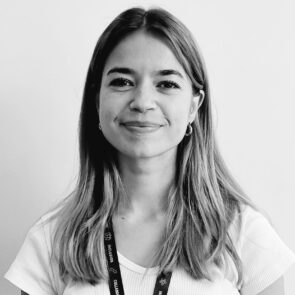
 Education:
Education:2023: BA Psychology, McMaster University
Research Interests:
As a recent graduate, my research interests are still taking shape! My previous projects have spanned both human behaviour as well as neurosciences. In a general sense, I am interested in abnormal psychology with a particular interest in internalizing symptoms. I hope to provide assistance and therapeutic interventions to those struggling with different mental health issues and intend to pursue a master’s in counselling psychology or a related domain.
Other Interests:
Outside of the lab I enjoy singing in choir, writing my own music or spending time with friends and family!
Laura Ferlanti
Clinical Research Project Coordinator

 Education:
Education:Present: MHSc, Translational Research Program, University of Toronto
2025: Hon. BSc., Biology and Psychology, Neuroscience & Behaviour, McMaster University
Research Interests:
During my undergraduate career, I developed an interest in the relationship between brain structure and cognitive function in development. More broadly, I am interested in how everyday life can be impacted by changes in the brain, especially considering neurological disorders and trauma. By pursuing my master’s, I hope to continue exploring my neurocognitive interests while also finding ways to create positive impacts in the Canadian healthcare system through innovation.
Other Interests:
Documentaries, pop music, traveling, cooking, sketch-art.
Thrisha Uthayakumar
Clinical Research Project Assistant
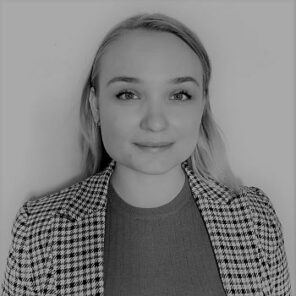

Education:
Present: PhD, Dept. of Psychology, University of Toronto
2020: MA, Dept. of Psychology, Ryerson University
2017: Hons. B.Sc., Dept. of Neuroscience, Dept. of Psychology, University of Toronto
Research Interests:
Forty years ago, a childhood diagnosis of a malignant brain tumour was a terminal prognosis but recent advances in treatment have drastically risen the survival rate to 85%. However, with this new increase in life the long-term emotion related ramifications of these curative interventions, like facial emotion recognition deficits, have only just recently begun to be elucidated leaving the root neural causes of emotion related cognitive deficits mostly unknown.
My research focuses lie in establishing a needed and essential physical representation of how the brain changes in response to paediatric tumour treatments. Today, I investigate the effect of observed white matter damage on the ability to correctly recognize facial emotion recognition in paediatric brain tumour survivors.
This research will provide the crucial groundwork necessary for identifying specific neurophysiological points of interest linked to emotional deficits in paediatric brain tumour survivors as well as aid in creating targeted intervention plans to slow or halt further emotion processing declines essential for restoring survivors’ social-emotional development and quality of life.
Other Interests:
In my spare time, I enjoy curating recipes for my cooking themed Instagram page @WhatsCookinLiz, reading about the stock and cryptocurrency markets, drawing and painting, learning new languages on Duolingo, fundraising for amazing causes like the Canadian Cancer Society, and planning trips and events to spend time with friends and family.
Liza Igoshina
Graduate Student – PhD

 Education:
Education:Present: PhD, Dept. of Psychology, University of Toronto
2021: MA, Dept. of Psychology, University of Toronto
2019: BSc, Dept. of Biomedical and Molecular Sciences, Queen’s University
Research Interests:
I am broadly interested in the long-term impact of pediatric brain tumours and their treatment on brain connectivity, cognition, and quality of life. My master’s work focused on episodic memory outcomes, and my current doctoral research explores the effects on cognitive control and social competency in childhood and adolescence.
Other Interests:
Outside the lab, I like to cook, travel, and read about true crime!
Katie Alonso
Graduate Student – PhD
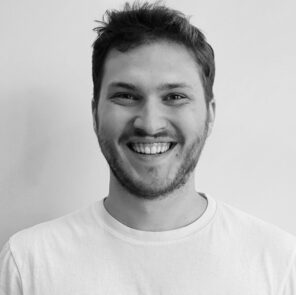

Education:
2021: Hon. BSc in Psychology, Neuroscience & Behaviour at McMaster University
Research Interests:
The impact of socioeconomic status on brain development and cognition in typically developing children and those treated for a brain tumour.
Other Interests:
Catch me on the GO train reading fantasy and crocheting or on the weekends cooking and serving my church
Jaden Kropf
Graduate Student – PhD
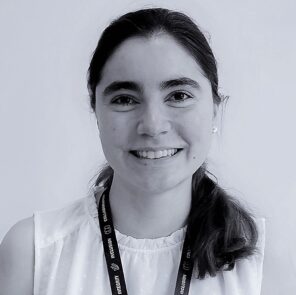
 Education:
Education:Present: PhD, Dept. of Psychology, University of Toronto
2022: HBSc, Psychology Research Specialist – Thesis and Neuroscience Major, University of Toronto
Research Interests:
I am broadly interested in research with the potential to inform educational practice and policy. My current research explores whether neural synchrony patterns in the developing brain enable broader attention and learning in childhood, addressing intriguing theoretical questions about how the nature of learning might change across development in ways that are adaptive. I am also interested in how cognitive and neural development vary based on contextual factors like socioeconomic status.
Other Interests:
Outside of the lab, I love to sing, play piano, draw, bake, and spend time running and biking outdoors!
Justine Vorvis
Graduate Student – PhD

 Education:
Education:Present: PhD, Dept. of Psychology, University of Toronto
2019: MS., Neuroscience and Education, Teachers College, Columbia University
2014: BSc (Hons) in Psychology and Cognitive Neuroscience, University of Nottingham
Research Interests:
My research interests lie at the intersection of neuroscience, developmental psychology, and clinical trials. I have previously examined how socioeconomic factors, such as family income and parental education, interact with stress to influence brain development and cognition in children. Additionally, I have explored how variations in parenting styles relate to brain structure and mental health outcomes during middle childhood.
Currently, my work focuses on clinical trials testing the efficacy of pharmacological agents aimed at cognitive and brain recovery in pediatric brain tumor survivors. I am also interested in how parent-child interactions may support recovery in these children. Ultimately, my goal is to contribute to the development of targeted interventions that promote resilience and healthy development in pediatric populations.
Other Interests:
I like traveling and reading about aviation, going to cultural and jazz shows, and exploring neighborhoods in the city on foot.
Rehan Rehman
Graduate Student – PhD

| Postdoctoral Fellows | Years in Mabbott Lab | Current Institution |
|---|---|---|
| Jennifer Ryan | 2022-2025 | Holland Bloorview Kids Rehabilitation Hospital, Toronto |
| Sonya Bells | 2016-2021 | Spectrum Health, US |
| Kamila Szulc | 2014-2017 | Oxford University, UK |
| Lily Riggs | 2012-2014 | Holland Bloorview Kids Rehabilitation Hospital, Toronto |
| Stephanie Ameis | 2009-2011 | Centre for Addiction & Mental Health (CAMH), Toronto |
| Tom Cunningham | 2007-2009 | Ontario Institute for Studies in Education/ University of Toronto, Canada |
| Garland Jones | 2007-2009 | Kennedy Krieger Institute, US |
| Anna Gold | 2004-2006 | The Hospital for Sick Children, Canada |
| Kim Edelstein | 2002-2003 | Princess Margaret Hospital, Canada |
| Graduate Students | Current Institution |
|---|---|
| Elizabeth Cox, PhD | Postdoctoral Fellow, Harvard University |
| Ade Oyefiade, PhD | Data Scientist, Eli Lilly |
| Iska Moxon-Emre, PhD | Data Scientist, Health Canada |
| Ramy Ayoub, MSc | University of Toronto, Dept. of Medical Biophysics |
| Alexandra Decker, PhD | Assistant Professor of Psychological & Brain Sciences, Washington University in St. Louis |
| Marita Partanen, Internship | Princess Maxima Center for Pediatric Oncology, Netherlands |
| Samantha Gauvreau, MSc | PhD Candidate, Toronto Metropolitan University |
| Logan Richard, MSc | Medical Student, University of Alberta |
| Nicole Law, PhD | Halton District Catholic School Board |
| Undergraduate students | Current Institution |
|---|---|
| Dunja Matic, PEY Co-op Student | University of Toronto, B.A.Sc. Engineering Science (Biomedical Option) |
| Juanita Atton, Research Student | Research Analyst, Toronto Rehabilitation Institute |